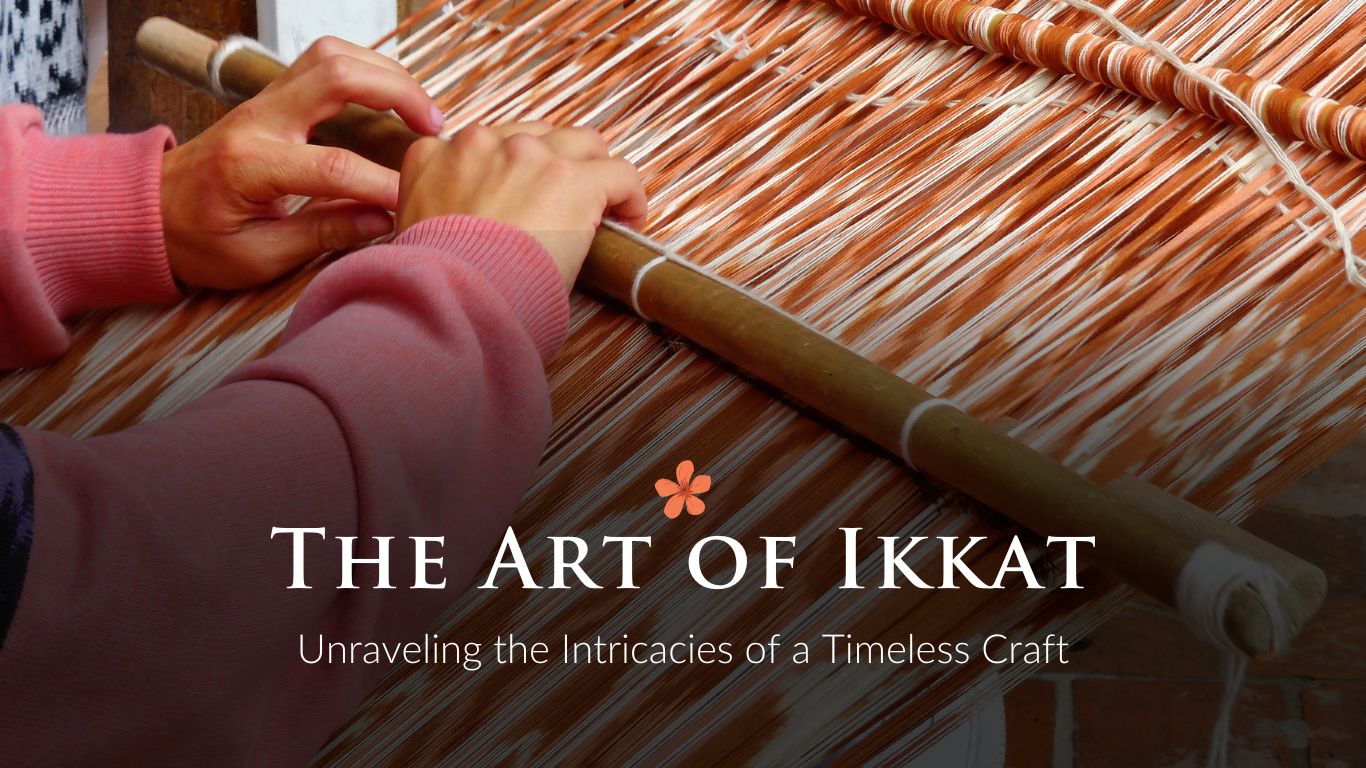The Art of Ikkat: Unraveling the Intricacies of a Timeless Craft

Ikat, or ikkat, stands as a testament to the intricate artistry and timeless elegance of traditional textile crafts. Originating from the Malay-Indonesian word ‘Mengikat’, meaning to tie a bundle of yarn or threads, ikat weaving involves a meticulous process where yarns are dyed before weaving, resulting in patterns that adorn both sides of the fabric.
The blurred edges of ikat patterns speak volumes about the skill and precision required by the weaver to align threads and create intricate designs. This blurriness, characteristic of ikat sarees and dresses, can be mitigated through the use of finer yarns and mastery of the craft.
While the exact origins of ikat remain shrouded in mystery, traces of its evolution can be found across Southeast Asian countries like Indonesia, Myanmar, and Thailand. Colonization further disseminated this art form to distant shores, including Central America and parts of South America.
In India, ikat found fertile ground through ancient trade routes, particularly with China and Indonesia. Andhra Pradesh/Telangana, Gujarat, and Odisha emerged as key hubs for ikat production, each showcasing unique techniques and patterns.
The allure of ikat products, be it sarees or dresses, lies not only in their distinctive aesthetics but also in the laborious craftsmanship behind their creation. At platforms like IndieHaat, enthusiasts can explore and acquire these exquisite pieces, celebrating the rich heritage and craftsmanship of ikat weaving.
The blurred edges of ikat patterns speak volumes about the skill and precision required by the weaver to align threads and create intricate designs. This blurriness, characteristic of ikat sarees and dresses, can be mitigated through the use of finer yarns and mastery of the craft.
While the exact origins of ikat remain shrouded in mystery, traces of its evolution can be found across Southeast Asian countries like Indonesia, Myanmar, and Thailand. Colonization further disseminated this art form to distant shores, including Central America and parts of South America.
In India, ikat found fertile ground through ancient trade routes, particularly with China and Indonesia. Andhra Pradesh/Telangana, Gujarat, and Odisha emerged as key hubs for ikat production, each showcasing unique techniques and patterns.
The allure of ikat products, be it sarees or dresses, lies not only in their distinctive aesthetics but also in the laborious craftsmanship behind their creation. At platforms like IndieHaat, enthusiasts can explore and acquire these exquisite pieces, celebrating the rich heritage and craftsmanship of ikat weaving.
-
Posted in
eco-friendly, heritage, ikkat, intricate designs, timeless art





